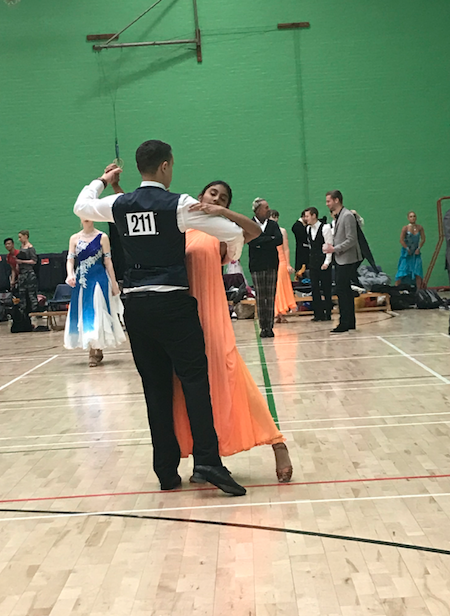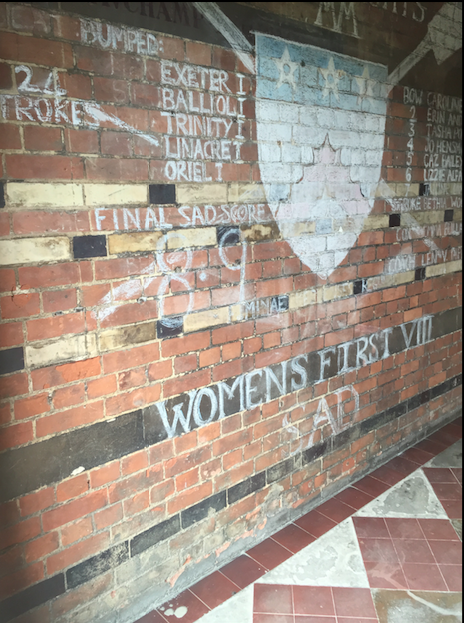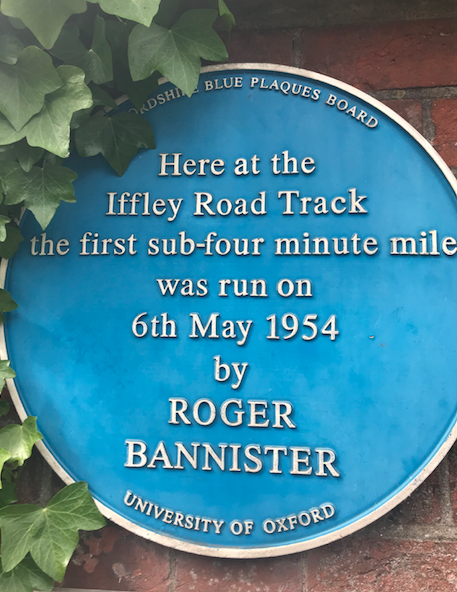Sport at Oxford
Remarkably, despite a full-time focus on study, Oxford students still find lots of time to play.
Pick any early morning (in normal times) and you will find them rowing down the river, jogging along the towpath, speeding round the Iffley Road track, scaling the climbing wall or ploughing up and down the fantastic Rosenblatt Swimming Pool.
In fact, Oxford students take part in at least 57(!) sports for which they can win ‘Blues’ or ‘Half-Blues’ and the right to wear a dark blue Oxford University Blazer (or blue and white-striped zebra-wise in the case of a Half-Blue) emblazoned with the crest of the appropriate sports club.

No, Quidditch is not a blues sport, but if you do anything from American Football to Yachting via Clay Pigeon Shooting, Croquet, Powerlifting and Ultimate Frisbee, there’s a team and a competition for you to take part in.
Sport at Oxford University really came into its own in the 19th century. Before that young men went hunting nearby or played Real Tennis. Merton College still has its Real Tennis court, with two professional coaches, though the court at Oriel College is no longer extant. A pity, as that was the court where Charles I was interrupted by a trumpeter come to sue for peace in 1642 (no, the peace talks failed, but Parliament did agree to send the King cloth for a new tennis suit).
The first Oxford-Cambridge Boat Race was held in 1829, though it was in Henley rather than London. Later onlookers used to watch races from barges with distinctive round windows – you can still find one hidden near Donnington Bridge. Today there are college boathouses all along the river Thames at a short distance from Folly Bridge and rowing’s popularity is undiminished. There are two major competitions held in Oxford every year– Torpids in the sleepy spring and Eights in the energetic summer rowed over several days.

Cricket too has always been very popular and some great names have honed their skills on the playing fields of Oxford – CB Fry, Colin Cowdrey, the Nawab of Pataudi, Imran Khan and Jamie Dalrymple to name but a few.
We also shouldn’t forget that the game of Rugby was invented by an Oxford man (though fortunately he went to Rugby school beforehand, or presumably ‘Oxford’ would be a game as well as a University). His name was William Webb Ellis and one day he decided to revolutionise football (or break the rules, depending how you look at it) and pick up the ball. You can see him immortalised in stone above the High Street entrance to Brasenose college, head down, arm round a ball.
‘A healthy mind in a healthy body!’ was the rallying cry of the 19th century public schools and once at Oxford, the ‘hearties’ looked down on the ‘aesthetes’. However, it all got a bit out of hand when sport seemed to be many young men’s sole reason for coming to Oxford.
The dons started to protest. Neville Coghill at Exeter commented in 1938 that ‘great athletes are seldom great scholars’ and a Pembroke don balked at the ‘conflict of time, energy and interest’ which led to some students ‘skimping study’. On the other hand, A.L. P Norrington, President of Trinity College, was concerned at the ‘tendency of undergraduates to mooch in the afternoon instead of taking exercise’.
In fact, sport was a requirement for a Rhodes Scholar, who couldn’t merely be a ‘bookworm’ and was expected to be an enthusiastic and capable participant in ‘manly sports’. With the belated acceptance of women scholars, the adjective has been deleted, however, it is true that Rhodes Scholars have contributed hugely to Oxford’s sporting successes.
It is also true that sports don’t seem to have interfered too much with the spectacular success of certain individuals. Take Sir Roger Bannister, who not only manage to run the very first sub-four-minute mile (on our Iffley Road track) but also became an outstanding neurologist and eventually Master of Pembroke College.
So what’s the attitude of today’s University to sport? The Oxford University Sport website tells us ‘A growing body of research is highlighting the many benefits that getting active has, from mental health, through to life expectancy and even academic performance. While Oxford has a truly world class pedigree when it comes to sport, we want to spread the simple message that sport really is for everyone.’
And the Pro Vice-Chancellor, Martin Williams, gives a balanced yet positive appraisal: “There is always a way to balance sports with studying, and we actively encourage students to get active while they are here.”

So, there’s no excuse for mooching around!
Walking Tours of Oxford are a great way to exercise and if you are really keen on sport, we can also show you (from a distance) some of our amazing sporting facilities and tell you more about its history.
© Victoria Bentata 2020 for Walking Tours of Oxford
